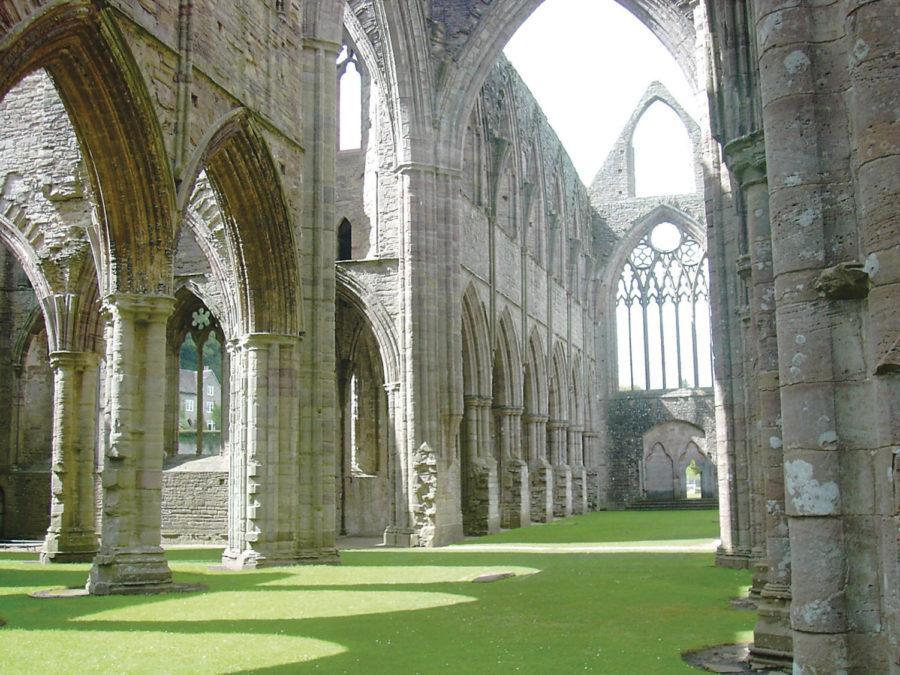Bohl: There is strength in silence
February 6, 2011
Anymore, it seems that in any particular corner of the political spectrum people are constantly contriving ways to improve the efficacy of our government and our American way of life. Both of these things are noble pursuits against which I draw no grievance. However, the methods I see continually employed in such plans are focused on the aggregate rather than the individuals that make up that system.
In the engineering disciplines there are a number of creative ways one can reinforce a wooden structure by virtue of its geometry, but a structure of wood will never have such strength or rigidity as a structure made of steel utilizing the same geometry. The difference in strength between the two structures lies in their molecules, the very building blocks of their nature. Improving our nation and our lives may require something different than government action. It may require that we improve ourselves as hard-working, thinking, creative individuals.
This is not hard to imagine, the thought that better-nformed voters and more educated citizens would make better choices and thus improve our democracy. This idea bears the brand of no particular political ideology. It does not speak of the role of government, or of the decline of Federalism in the United States, but it does speak, nay it cries, one thing and one thing only, “E Pluribus Unum!” (Out of many, one!) A simple idea for sure, but how do we begin to take steps toward bettering ourselves as citizens and individuals.
The first step, and in many ways the most critical, is to begin to think one’s own thoughts. This idea of “finding your own voice” is possibly the most polluted and misunderstood notion in our culture today, but it is nonetheless critical to making decisions as a person rather than merely a consumer. The process of beginning to think independently begins, at least in some part, with silence.
Our culture is saturated with information constantly, and very little of it serves deep purpose. Among the billboards along interstate selling one product or another and the texts we receive from friends that simply say “I’m bored in econ,” or the worthless opinions of writers in the student paper, our minds are given little time to reflect. In many ways our generation has grown up with very little time to ourselves, and now we often consciously or unconsciously seek to suppress the presence of silence in our lives. But silence provides us with an opportunity to stop analyzing external stimuli and begin to produce in at least some small way our own thoughts.
In older days men and women found silence looking out the window on the train to work, on the tractor in the fields as the sun’s first orange fingers gripped the landscape or on the fishing boat, between the intermittent laps of water against the hull. This summer I was given an opportunity to experience silence in a pure and ancient form, in the cloister of a Monastery.
For five days in the heat of August, I lived with Cistercian Monks. For five days I stayed in a cell with only a lamp, a few books, and a small bed. Silence permeated the grounds. The monks, under holy oath never spoke, and for those five long days I was trapped alone entirely with my thoughts. It was a singular experience. My mind reeled in the long, lonely hours between the liturgies and chants in the chapel. There was no music, there were no voices, no ads and no one’s opinion. There was food, there was life and there were my thoughts. While the external landscape of the cloister was peaceful, my internal reality was a psychological maelstrom.
Thoughts, desires, pains and memories, crashed like waves into the island of my consciousness. Hours crept by like years, and the experience was something that could only be described as maddening. Every night on that tiny cot, in that tiny, hot cell, I thought of running away while the Guestmaster slept, but I stayed, and sometimes only by the strength of my vanity.
While what passed through my labored mind was personal and intimate, I will tell you that in those five days, living the life of a contemplative, I found a voice within me that was my own, and a definition of myself that existed outside the opinions of others, outside of societal definition. Staying with these champions of contemplation helped me understand life as life, free from the shackles of influence (shackles to which I have reluctantly returned).
But why do I relate this anecdote? Is my solution to a stronger America to send collegiate youth to Trappist Orders across the nation? No, of course not. I relate it as an extreme example of how we can strengthen ourselves with silence, and learn to enrich ourselves as citizens by something as simple as switching off the TV at breakfast and taking silence to task with our own thoughts over a bowl of Wheaties. A little contemplation now and then about who we are as men, as Americans, as humans, will clarify our goals and shape our opinions. It will bring us shelter in a blizzard of media wherein we may learn again to form free opinions and vote as we think we ought, not as we are told we should.







